67 F. high yesterday in the Twin Cities.
72 F. high in St. Cloud
81 F. high in Madison, Minnesota Friday.
54 F. average high on October 24.
44 F. high on October 24, 2013.
October 24, 1887: Albert Lea set a record low of -6 degrees F.
October 24, 1830: Heat wave at Ft. Snelling. Temperature reached 80.
Unforgettable
Dear Diary: I take back
everything bad I've ever said about Minnesota weather. The last few
weeks have been an inspiration. Not one "Hey Paul, can't you DO
something about this?" No death-stares or helpful suggestions from
strangers about what I can do with my Doppler. I honestly can't remember
a fall this remarkable.
On October 25, 1887 the Twin Cities woke
up to 12F, prevailing winds howling from the polar regions. In contrast
highs reach the 60s again today, the 13th day above 60F so far in
October. A ridge of high pressure parked over the Plains has kept
numbing air bottled to our north, jet stream steering winds churning
high overhead more Pacific than Canadian.
Of course the big
question is how long this mild bias will linger, and whether a
developing El Nino will help us avoid a rerun of last winter's cruel
arctic block.
The atmosphere remains too warm aloft for snow
into the second week of November, but you'll still get some mileage out
of a favorite jacket. We may see a few refreshing(?) days in the 40s
next week.
Nothing Nanook is brewing looking out 2 weeks, but the Witch Watch remains in effect next Friday: mostly clear, 45-50F.
No scary blizzards this year.
 Daily Statewide Climate Records in 2014.
Daily Statewide Climate Records in 2014.
Dr. Mark Seeley takes a look at general trends this year and specific
towns where new climate records have been broken. Here's an excerpt of
this week's
WeatherTalk: "..
.In
general this year across Minnesota has been cooler than normal, with
mixed precipitation (most areas above normal, but with some drier than
normal spots). For a statewide look, temperature-wise five months have
been abnormally cool and four months near normal. Moisture-wise three
months have been drier than normal, three months near normal, and three
months above normal, with a record-setting wettest June in history. In
June over 30 climate stations set new monthly rainfall records, with
several reports over 12 inches. Amidst the data for 2014 so far, there
are nine statewide daily climate records which have been set..." (Image credit: funcram.com).
Watch Hurricane Odile Ravage Resort in Baja California, Mexico in Newly Released Video. Weather.com
has a video clip showing security camera footage as the back half of
Odile's eyewall came ashore. Amazing. Here's an excerpt: "...
In the
video above, you can see the gripping footage taken shortly after
Odile's eye passed over the resort, as the back end of the hurricane
began to ravage Cabo San Lucas. The footage appears to be from a hotel
security camera, but you can clearly see Morgerman and his crew
documenting the storm and sheltering inside the damaged resort. "Odile
was the strongest hurricane landfall of 2014 in either the eastern
Pacific or Atlantic basins," said weather.com senior meteorologist..."
* Technical problems with satellites data possibly impacting model accuracy? Details from
Capital Weather Gang.
Student Storm Chasers Develop Drones to Probe Killer Tornadoes.
Here's an idea that has merit, although anything flying into a 100-300
mph swirling landfill of debris is going to have trouble surviving and
operating to spec. Here's a clip from
Scientific American: "...
The
main body looks a little like a miniature B-2 stealth bomber, with a
body made of foam aviation fiberglass. The team has made several
prototypes and will soon be finished with the drone it will use to fly
into the storm, but Causey said the team will need likely several
attempts before it can make its design work. In order to fund the
designs and the biggest expense—costs related to storm chasing like
food, gas and hotels—the team has begun a Kickstarter campaign to help raise money..."
Photo credit above: "
Student
storm chasers and the drone that has replaced their truck, from left to
right: Warren Causey, Nolan Lunsford and Brent Bouthiller."
Photo by Warren Causey, courtesy of the Sirens Project
1934 Drought In Dust Bowl Days Was Worst in Thousand Years for U.S.: NASA. Here's a clip from a story at NBC News that made me do a double-take: "The
drought of 1934 wasn’t just bad, it was the worst. That’s the finding
of a reconstruction of North American drought history over the past
1,000 years, done by scientists from NASA and Columbia University’s
Lamont-Doherty Earth Observatory. Their study, to be published in the
Oct. 17 issue of Geophysical Research Letters, concludes the drought of
1934 during the Dust Bowl years in the North American Plains was 30
percent more severe than the next worst, which occurred in 1580, NASA said. The scientists used tree ring records from 1000 to 2005 along with modern observations..." (Image:
Wikipedia).
Rising Above The Risk: America's First Tsunami Refuge. Yes, it puts our cold fronts into stark perspective. Here's the intro to a press release from
The Geological Society of America: "
Washington’s
coast is so close to the seismically active Cascadia Subduction Zone
that if a megathrust earthquake were to occur, a tsunami would hit the
Washington shoreline in just 25 minutes. One coastal community is
preparing for such a disaster by starting construction on the nation’s
first tsunami evacuation refuge, large enough to shelter more than 1,000
people who are within 20-minute walking distance. The vertical
evacuation-refuge will be the roof of the gym of the new school in Grays
Harbor County, Washington. The Ocosta Elementary School and Tsunami
Safe Haven will be the first of its kind in the nation and will be the
culmination of 18 years of effort, said Tim Walsh, who is a Chief Hazard
Geologist at the Department of Natural Resources and has been working
on this project since The National Tsunami Hazard Mitigation Program was
formed in 1995..."
Elephants Able To Detect Rainstorms 150 Miles Away. Forget Doppler, I'm buying an elephant. Here's the intro to an explanation at
Popular Science: "
Lions
may be the kings of the animal world, but at least elephants could make
for spunky meteorologists. New research is revealing that elephants
have a radar-like spidey sense, capable of detecting an approaching
rainstorm up to 150 miles off. While this may seem like an impractical
talent, researchers say elephants' weather-predicting could help human
conservationists save the animals from poachers. The elephants’
abilities are rooted in their excellent hearing skills..." (File photo:
Wikipedia).
Vehicle Owners With Defective Air Bags Urged to Take Immediate Action.
I checked on my family's vehicles to see if any might be threatened by
shrapnel-shooting air bags and wanted to share the link with you. Here's
a list of all the vehicles impacted, courtesy of
NHTSA, the National Highway Traffic Safety Administration: "
The
list below corrects the list that accompanied our October 20 advisory,
which incorrectly included certain vehicles. The numbers cited for
potentially affected vehicles below are subject to change and adjustment
because there may be cases of vehicles being counted more than once.
Owners should check their VIN periodically as manufacturers continue to
add VINs to the database. Once owner recall notices are available,
owners can retrieve a copy from SaferCar.gov, or will receive one by
U.S. mail and are advised to carefully follow the enclosed instructions..."
Most Energy Efficient States in the USA?
Minnesota came in at #10, details from ACEEE, the American Council for
an Energy-Efficient Economy. Here's an excerpt of their report,
hightlighted at
InvestorIdeas.com: "
Governors
and lawmakers in state capitals across the nation continue to take
major steps to lower energy costs, reduce pollution, and save consumers
money by increasing their states' energy efficiency, according to the
findings of the 8th edition of the State Energy Efficiency Scorecard
released today by the American Council for an Energy-Efficient Economy
(ACEEE). Available online at http://aceee.org/state-policy/scorecard,
the report found that in 2014 Massachusetts (#1) continues to edge out
California (#2) as the most energy-efficient state in the nation for the
fourth year in a row. Following these states in the top 10 are: Rhode
Island (marking the state's first time in top five), Oregon, and Vermont
(all tied for #3); Connecticut (#6); New York (#7); Washington (#8);
Maryland (#9); and Minnesota (#10)..."
*
Minneapolis: 8th Most Energy Efficient City. ACEEE has the Twin Cities behind Boston (#1), New York City, Washington D.C., Austin and Seattle. The city summary is
here.
For $100,000 You Can Clone Your Dog.
No, I'm not entirely comfortable with where this is heading either. But
if you're disgusted and/or curious click on story details from
Bloomberg Businessweek.
There's More To Life Than Being Happy.
Could the pursuit of happiness be making us more unhappy? Is happiness
an accidental byproduct of the pursuit of something....more? Here's a
clip from an article at
The Atlantic that got my attention: "...
At this writing, Gallup
also reports that nearly 60 percent all Americans today feel happy,
without a lot of stress or worry. On the other hand, according to the Center for Disease Control,
about 4 out of 10 Americans have not discovered a satisfying life
purpose. Forty percent either do not think their lives have a clear
sense of purpose or are neutral about whether their lives have purpose.
Nearly a quarter of Americans feel neutral or do not have a strong sense
of what makes their lives meaningful. Research has shown that having
purpose and meaning in life increases overall well-being and life
satisfaction, improves mental and physical health, enhances resiliency,
enhances self-esteem, and decreases the chances of depression..."
Watching This Porcupine Taste a Pumpkin Is Why The World Is Going To Be Okay Today. Thanks to
Mother Jones for including some sugar with the medicine; here's a clip: "...
Teddy
Bear, an 11-year-old male North American porcupine (Erethizon
dorsatum), is something of a YouTube star at this point, it seems. According to Zooiversity's website, he's raked in 11.5 million views from 16 viral videos and enjoys a following from over 19,000 Facebook fans..."
TODAY: Sunny, breezy, pleasant. Winds: NW 10-15. High: 63
SATURDAY NIGHT: Mostly clear and cool. Low: 39
SUNDAY: Fading sun, still breeze. High: near 60
MONDAY: More clouds, still mild. Showers north/east of MSP. Wake-up: 50. High: 64
TUESDAY: Mostly cloudy and cooler, feels like October. Wake-up: 44. High: 51
WEDNESDAY: Partly sunny and brisk. Wake-up: 33. High: 49
THURSDAY: Mix of clouds and sun, chilly. Wake-up: 36. High: 53
HALLOWEEN: Clear, cool and dry for Walking Dead Reunion. Wake-up: 30. High: 48
Climate Stories...
Canada Switches on World's First Carbon Capture Power Plant. An encouraging step to control CO2 emissions, but it's one plant, and the price is still cost-prohibitive. Here's more from
The Guardian: "
Canada
has switched on the first large-scale coal-fired power plant fitted
with a technology that proponents say enables the burning of fossil
fuels without tipping the world into a climate catastrophe. The project,
the first commercial-scale plant equipped with carbon capture and
storage technology, was held up by the coal industry as a real life
example that it is possible to go on burning the dirtiest of fossil
fuels while avoiding dangerous global warming..."
Photo credit above: "
Boundary Dam CCS power plant in Canada."
Photograph: SaskPowerCCS.
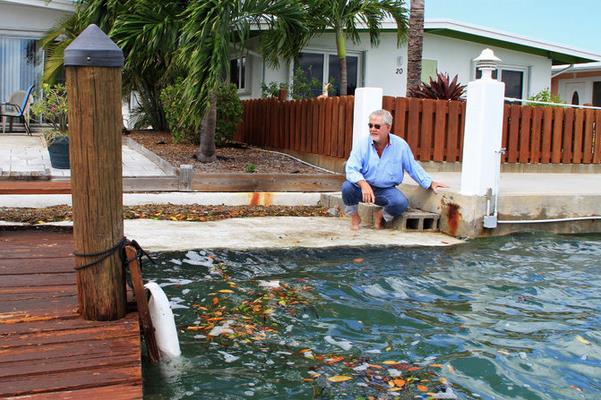 Pragmatism on Climate Change Trumps Politics at Local Level Across U.S.
Pragmatism on Climate Change Trumps Politics at Local Level Across U.S.
While D.C. congressmen pontificate, awash in special interest money,
residents of south Florida are seeing the impacts of a warming
atmosphere and rising sea washing up over their loafers. Here's an
excerpt from
The New York Times: "...
While politicians are increasingly willing to include environmental messages
in their campaigns, many at the national level still steer clear of the
politically charged topic of climate change. But in communities across
the country where the effects are lapping at the doorsteps of residents,
pragmatism often trumps politics, and candidates as well as elected
officials across the political spectrum are embracing the issue. Some
local Republican officials in Florida and elsewhere say they can no
longer follow the lead of state and national party leaders..."
Photo credit above: "
George
Neugent, the commissioner of Monroe County, on a residential dock in
Key Colony Beach, Fla. The recent king tide brought seawater over the
docks in the community." Credit Kristen Livengood for The New York Times
Big Insurance Won't Prep or Pay for Climate Change, Fails To See Irony.
Grist dives into the existential threat to the insurance industry that is climate change; here's a snippet: "...
Actually
thinking about and preparing for climate change is going to be a
headache for the insurance industry, just like it is for the rest of us.
But in their case, there’s a clear financial incentive, and there’s an
opportunity to use their data to help improve our existing climate models. There’s also the fact that insurers, if they aren’t blocked by local governments, can do a lot to make sure that property after a disaster is rebuilt more sensibly..."
State and Local Climate Adaptation Plans.
The Georgetown Climate Center
has an interactive tool that lets you explore what individual states
are doing to prepare for increasing climate volatility and extremes: "
States
and communities around the country have begun to prepare for the
climate changes that are already underway. This planning process
typically results in a document called an adaptation plan. (Above) is a
map that highlights the status of state adaptation efforts. Click on a
state to view a summary of its progress to date and to access its full
profile page. State profile pages include a detailed breakdown of each
state's adaptation work and links to local adaptation plans and
resources..."
Rosenburg: Politicians Agree That They Aren't Scientists. Saying "I'm not a scientist" when it's politicically inconvenient is a cop-out. An Op-Ed at
Newsday on Long Island caught my eye; here's an excerpt: "...
But
as marine science professor David Hastings told Scott, scientists are
the "mapmakers" while politicians are the "navigators." The navigator
must ultimately choose the ship's course, but to do so while ignoring -
or arbitrarily redrawing - the map is a perilous business. The
distinction and the process should be familiar to any elected official.
After all, politicians aren't engineers, but they approve infrastructure
projects. They aren't accountants, but they create budgets. They aren't
inventors, but they make patent laws..."
As Planet Warms, Scientists Predict Changes for Autumn Leaf Season. Here's an excerpt from a story at
Think Progress: "...“
Global
climate change will not eliminate fall leaf color, but the best
displays will move northward and upward in elevation in response to
warming. For forests in their present location, fall foliage displays
will occur later in the season and may last longer, but will be of
diminished quality due to less intense red colors,” Neufeld writes. “The
fall foliage displays that our grandchildren will see at the end of
this century will not be the ones we see today.” (Graphic above: Climate Central).
Methane Leaks Wipe Out Any Climate Benefit of Fracking, Satellite Observations Confirm.
Natural gas is cleaner, assuming there are few methane leaks around the
drill heads, which may turn out to be a big assumption. Joe Romm has
the article at
Think Progress; here's the intro: "
Satellite
observations of huge oil and gas basins in East Texas and North Dakota
confirm staggering 9 and 10 percent leakage rates of heat-trapping
methane. “In conclusion,” researchers write,
“at the current methane loss rates, a net climate benefit on all time
frames owing to tapping unconventional resources in the analyzed tight
formations is unlikely.” In short, fracking speeds up human-caused
climate change, thanks to methane leaks alone. Remember, natural gas is mostly methane, (CH4), a super-potent greenhouse gas, which traps 86 times as much heat as CO2 over a 20-year period..."
A Retreat From Weather Disasters.
There is no constitutional right to property insurance or flood
insurance. What happens when enough insurance companies reach the
conclusion that risks are just too high to insure specific communities?
It's already happening, as reported by
The New York Times; here's an excerpt: "...
As
the damages wrought by increasingly disruptive weather patterns have
climbed around the world, the insurance industry seems to have quietly
engaged in what looks a lot like a retreat. A report to be released
Wednesday by Ceres,
the sustainability advocacy group, makes the point forcefully. “Over
the past 30 years annual losses from natural catastrophes have continued
to increase while the insured portion has declined,” it concluded. Last
year, less than a third of the $116 billion in worldwide losses from
weather-related disasters were covered by insurance, according to data
from the reinsurer Swiss Re..."



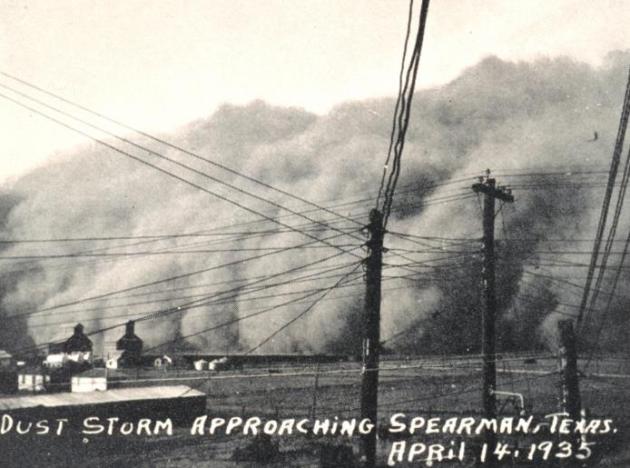

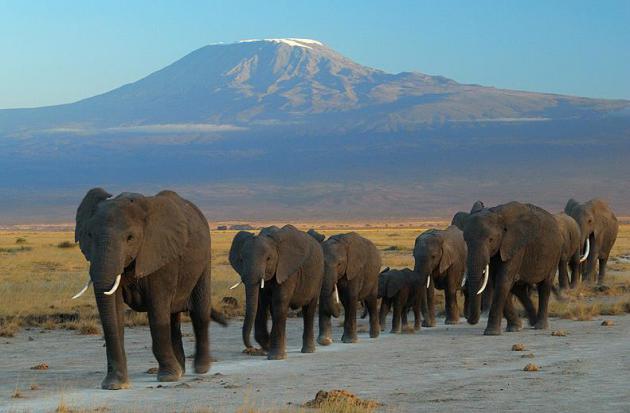

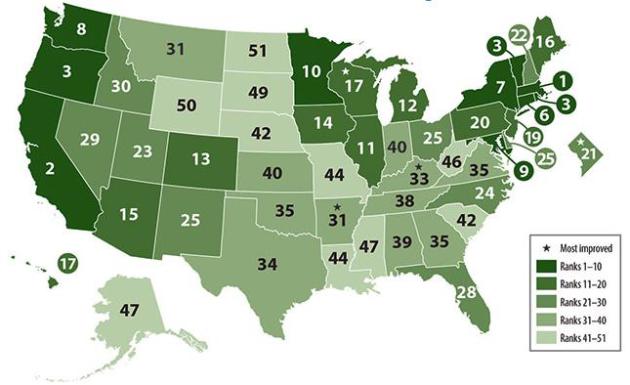



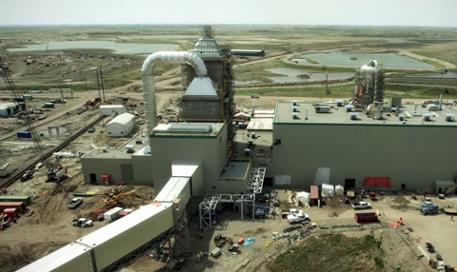

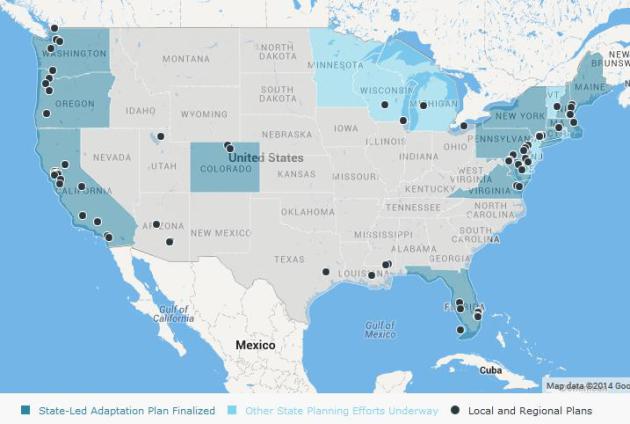
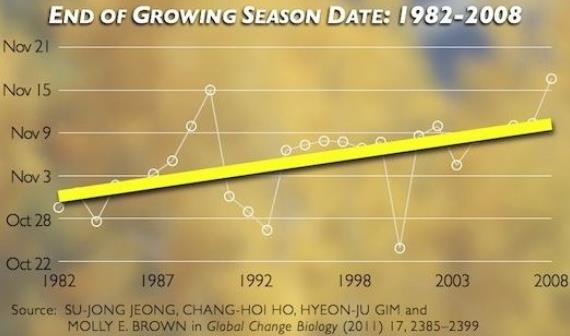

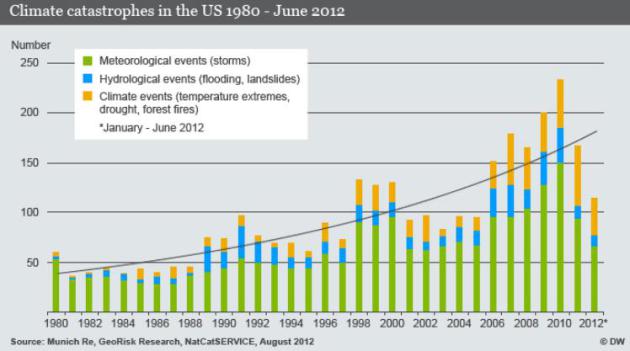
No comments:
Post a Comment